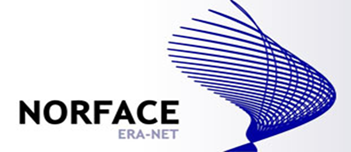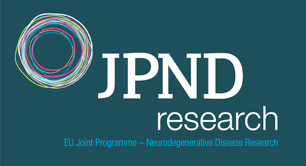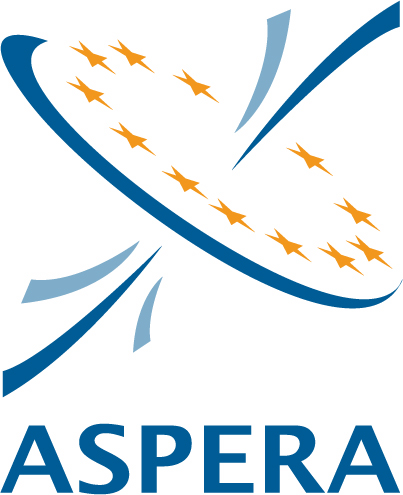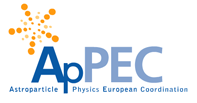Multilateral cooperation
NORFACE
 The National Science Centre is a member of the NORFACE (New Opportunities for Research Funding Agency Co-operation in Europe) consortium, working within an ERA-NET-type network, that has 15 European countries and Canada as members. The consortium’s mission is to support research in social sciences. Its activities include funding international research projects and organising conferences and seminars in the area of Social Sciences.
The National Science Centre is a member of the NORFACE (New Opportunities for Research Funding Agency Co-operation in Europe) consortium, working within an ERA-NET-type network, that has 15 European countries and Canada as members. The consortium’s mission is to support research in social sciences. Its activities include funding international research projects and organising conferences and seminars in the area of Social Sciences.
EU Joint Programme – Neurodegenerative Disease Research (JPND)
 The National Science Centre is a member of the EU Joint Programme – Neurodegenerative Disease Research (JPND), the largest global research initiative aimed at tackling the challenge of neurodegenerative diseases. JPND aims to confront the growing challenge posed by neurodegenerative diseases in our ageing population by bringing together researchers, existing research evidence and national funding bodies to investigate the key research questions and barriers to progress in this area. The ultimate goal of JPND is to find cures for neurodegenerative diseases and to enable early diagnosis for early targeted treatments. Its current strategy is to increase coordinated investment in neurodegenerative disease (ND) research aimed at finding causes of disease, developing cures, and identifying appropriate ways to care for those with ND.
The National Science Centre is a member of the EU Joint Programme – Neurodegenerative Disease Research (JPND), the largest global research initiative aimed at tackling the challenge of neurodegenerative diseases. JPND aims to confront the growing challenge posed by neurodegenerative diseases in our ageing population by bringing together researchers, existing research evidence and national funding bodies to investigate the key research questions and barriers to progress in this area. The ultimate goal of JPND is to find cures for neurodegenerative diseases and to enable early diagnosis for early targeted treatments. Its current strategy is to increase coordinated investment in neurodegenerative disease (ND) research aimed at finding causes of disease, developing cures, and identifying appropriate ways to care for those with ND.
Read more on JPND and funding opportunities »
HERA
 HERA – Humanities in the European Research Area - is a partnership between 21 Humanities Research Councils across Europe and the European Science Foundation (ESF), with the objective of firmly establishing the humanities in the European Research Area and in the European Commission Framework Programmes.
HERA – Humanities in the European Research Area - is a partnership between 21 Humanities Research Councils across Europe and the European Science Foundation (ESF), with the objective of firmly establishing the humanities in the European Research Area and in the European Commission Framework Programmes.
ASPERA
 ASPERA is a European network of institutions coordinating and financing research within the field of Astroparticle Physics. It commenced its activities in 2006 and to date two grant competitions editions have been announced. The aim of the first funding opportunity, launched in 2006, was to support research into dark matter as well as works in the field of design serving the Cherenkov Telescope Array. While the second edition concerned cosmic rays at higher energies as well as experiments connected with neutrino mass. The main achievements of ASPERA are the development of the European strategy for astroparticle physics and the preparation of a roadmap for this research field.
ASPERA is a European network of institutions coordinating and financing research within the field of Astroparticle Physics. It commenced its activities in 2006 and to date two grant competitions editions have been announced. The aim of the first funding opportunity, launched in 2006, was to support research into dark matter as well as works in the field of design serving the Cherenkov Telescope Array. While the second edition concerned cosmic rays at higher energies as well as experiments connected with neutrino mass. The main achievements of ASPERA are the development of the European strategy for astroparticle physics and the preparation of a roadmap for this research field.
INFECT-ERA
 The National Science Centre is a member of the Infect-ERA consortium which consists of 14 European research funding agencies from 11 countries .The consortium inspires international cooperation in the research of infectious diseases through transnational calls, supporting young researchers and gathering the relevant information on funding and infrastructures related to infectious diseases. Infect-ERA also strives to disseminate the results of its activities both to scientists and the public. Infect-ERA is a continuation of the ERA Pathogenomics network, which, between 2007 and 2010, launched 3 calls for proposals. As a result of the 1st call, Global methods and genome-based approaches to study human bacterial and fungal pathogens, 12 projects were selected for funding. In the 2nd and the 3rd call, regarding prevention, diagnosis, treatment and monitoring of infectious diseases in humans, the consortium awarded 13 and 9 projects respectively. In the second half of February, the NCN together with Infect-ERA will announce a call for proposals on infectious diseases. Detailed information on this funding opportunity will be published on our website as well as on the Infect-ERA web page.
The National Science Centre is a member of the Infect-ERA consortium which consists of 14 European research funding agencies from 11 countries .The consortium inspires international cooperation in the research of infectious diseases through transnational calls, supporting young researchers and gathering the relevant information on funding and infrastructures related to infectious diseases. Infect-ERA also strives to disseminate the results of its activities both to scientists and the public. Infect-ERA is a continuation of the ERA Pathogenomics network, which, between 2007 and 2010, launched 3 calls for proposals. As a result of the 1st call, Global methods and genome-based approaches to study human bacterial and fungal pathogens, 12 projects were selected for funding. In the 2nd and the 3rd call, regarding prevention, diagnosis, treatment and monitoring of infectious diseases in humans, the consortium awarded 13 and 9 projects respectively. In the second half of February, the NCN together with Infect-ERA will announce a call for proposals on infectious diseases. Detailed information on this funding opportunity will be published on our website as well as on the Infect-ERA web page.
JPI Cultural Heritage
 JPI Cultural Heritage is a network supporting research on cultural heritage. It consists of 17 European countries: Italy, Belgium, Cyprus, Czech Republic, Denmark, France, Ireland, Netherlands, Lithuania, Norway, Poland, Romania, Slovakia, Slovenia, Spain, Sweden and United Kingdom. Additionally 8 countries have joined JPI CH as observers, i.e. Austria, Bulgaria, Estonia, Germany, Greece, Israel, Latvia and Portugal. Protection of cultural heritage in the face of global change is becoming a major for European society. Therefore JPI CH’s mission is to support research aiming to safeguard cultural heritage against continuous decay and develop a definition of strategic and scientific priorities helping its protection. The network also supports joint coordinated research activities on cultural heritage. Its main objectives include also engagement of stakeholders through a communication plan to ensure the translation of research outputs into practice and policy. On the 10th of January 2013 JPI Cultural Heritage announced a call for proposals including 4 research topics. However, the NCN will fund only projects in basic research developing the forth topic: Increasing understanding of cultural values, valuation, interpretation, ethics and identity around all forms of cultural heritage (tangible, intangible and digital heritage).
JPI Cultural Heritage is a network supporting research on cultural heritage. It consists of 17 European countries: Italy, Belgium, Cyprus, Czech Republic, Denmark, France, Ireland, Netherlands, Lithuania, Norway, Poland, Romania, Slovakia, Slovenia, Spain, Sweden and United Kingdom. Additionally 8 countries have joined JPI CH as observers, i.e. Austria, Bulgaria, Estonia, Germany, Greece, Israel, Latvia and Portugal. Protection of cultural heritage in the face of global change is becoming a major for European society. Therefore JPI CH’s mission is to support research aiming to safeguard cultural heritage against continuous decay and develop a definition of strategic and scientific priorities helping its protection. The network also supports joint coordinated research activities on cultural heritage. Its main objectives include also engagement of stakeholders through a communication plan to ensure the translation of research outputs into practice and policy. On the 10th of January 2013 JPI Cultural Heritage announced a call for proposals including 4 research topics. However, the NCN will fund only projects in basic research developing the forth topic: Increasing understanding of cultural values, valuation, interpretation, ethics and identity around all forms of cultural heritage (tangible, intangible and digital heritage).
For more information please click here:
http://ncn.gov.pl/aktualnosci/2013-01-11-konkurs-jpnd
http://www.jpi-culturalheritage.eu/jhep-joint-pilot-call/
ApPEC
 The National Science Centre is a full member of the ApPEC consortium (Astroparticle Physics European Consortium), a body whose mission is to promote and support research in Astroparticle Physics. The ApPEC is a result of the years of experience within the ERA-NET-type network such as ASPERA and ASPERA-2 and a continuation of the former Astroparticle Physics European Coordination.
The National Science Centre is a full member of the ApPEC consortium (Astroparticle Physics European Consortium), a body whose mission is to promote and support research in Astroparticle Physics. The ApPEC is a result of the years of experience within the ERA-NET-type network such as ASPERA and ASPERA-2 and a continuation of the former Astroparticle Physics European Coordination.
Thanks to the efforts of the people involved in those initiatives, new solutions in research project funding and a roadmap for Astroparticle Physics were created. It also led to the launch of 3 calls for proposals for international research projects.
The new consortium’s memorandum of understanding has thus far been signed by 11 European agencies representing Belgium, Croatia, France, Germany, the Republic of Ireland, Italy, the Netherlands, Romania, the United Kingdom and Poland. ApPEC tasks cover, among others, participation in the European debate on research in Astroparticle Physics, co-engineering European strategies in the scientific field and collaborating with organisations conducting research in the field, such as CERN, ESA or ESO.

 Facebook
Facebook Twitter
Twitter LinkedIn
LinkedIn YouTube
YouTube Instagram
Instagram